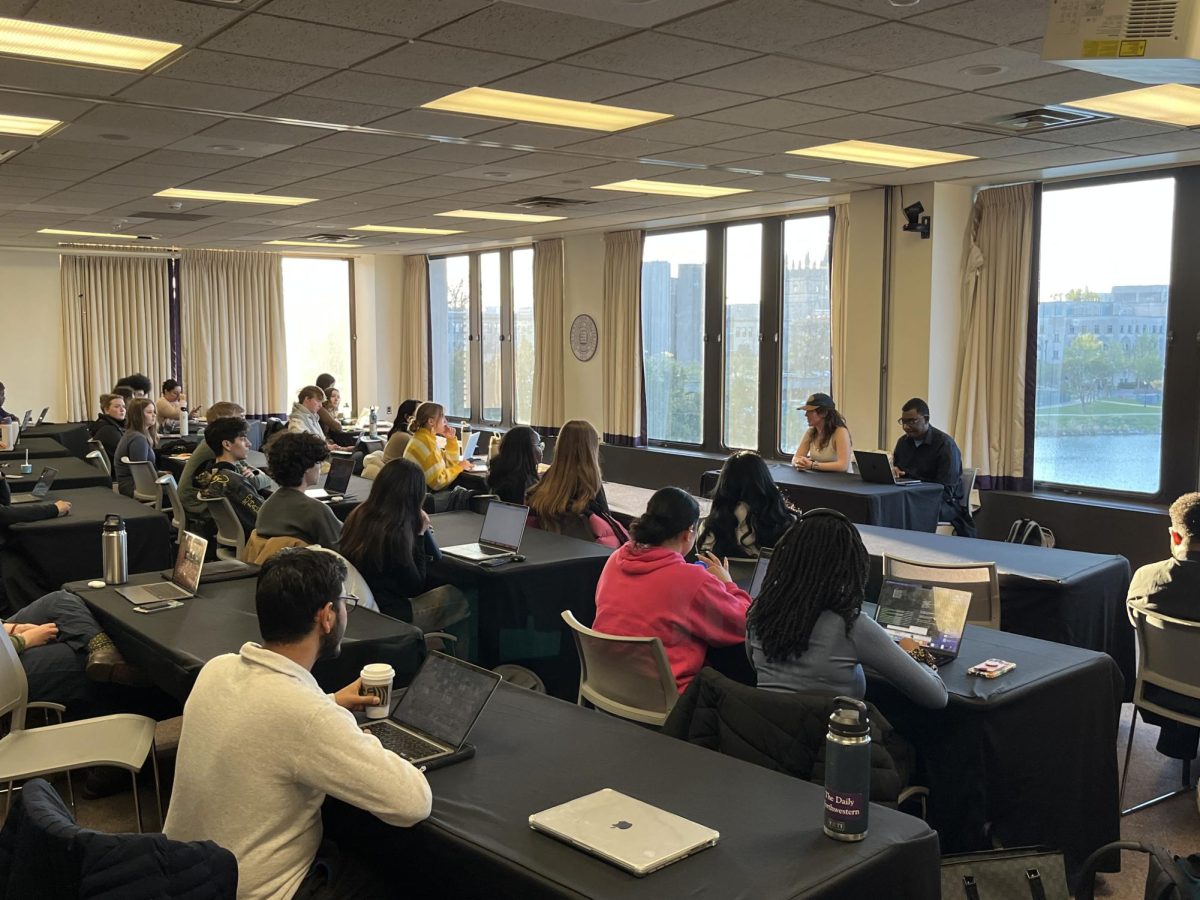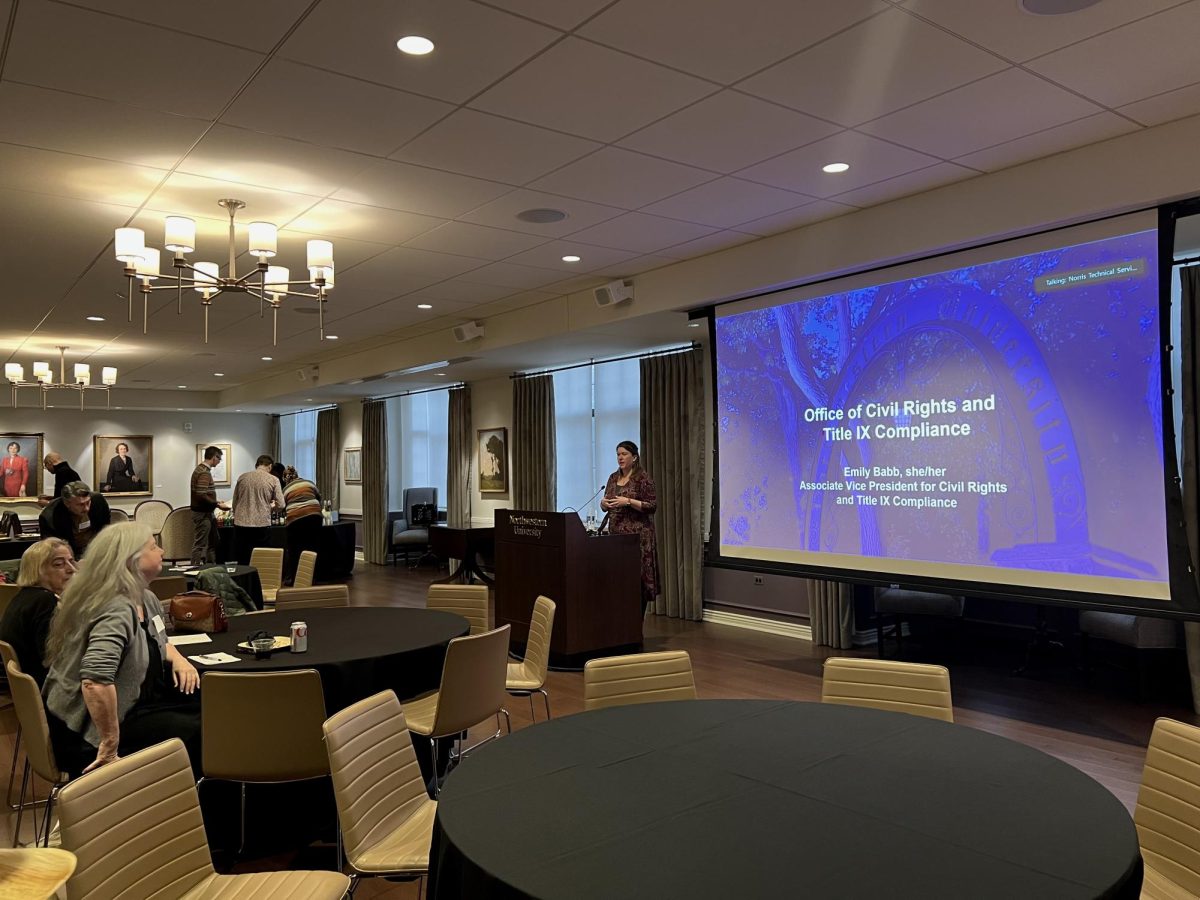
Body Acceptance Week kicked off Monday with a talk focusing on a topic not often discussed: male body image.
Dr. Roberto Olivardia, a clinical psychology instructor at Harvard Medical School, delivered a lecture titled “In Pursuit of Adonis: Male Body Image in Contemporary Culture.” NU’s Counseling and Psychological Services, NU’s Health Service, the Women’s Center and the dance department sponsored the talk attended by about 50 people in Norris University Center, said Dr. Eileen Biagi, CAPS staff psychologist and coordinater of the Eating Concerns Team.
Olivardia addressed males’ battles with anorexia nervosa, bulimia nervosa, binge eating and other eating disorders, as well as steroid use and pursuance of cosmetic surgeries. He said body image issues and eating disorders have both increased in prevalence and attracted more notice in the last three decades.
Olivardia first explained the Adonis Complex, named for the mythological figure who Olivardia said embodies the ideal male image. Men with this complex strive for facets of this image, including a muscular physique and a strong jawline. Olivardia said men can manifest this in various ways, including eating disorders, body dissatisfaction, steroid use and body dysmorphic disorder, an obsession with some facet of one’s appearance.
Olivardia said males make up 10 to 15 percent of people with bulimia and 5 to 10 percent of people with anorexia. Eating disorders, he said, are also quite prevalent in University students, with 5 to 20 percent of male students at risk.
The psychologist has also studied the phenomenon of “muscular belittlement” in males, which causes them to believe they are less muscular than they actually are. He said men experiencing this are more likely to experience depression, eating disorders, a drive for thinness and negative self-esteem.
“It was one of the first studies to show how the variability of muscularity is integral to how men and boys view their body image,” he said.
The problem with the desire to be muscular, Olivardia said, is that with muscle also comes increased fat content.
“That’s where the dilemma is for a lot of these boys,” he said.
Males’ manifestations of their eating disorders differ from those of women, Olivardia said. Males tend to binge and exercise more often, while women are more likely to abuse laxatives and diet pills and seek thinness rather than muscularity.
Olivardia also touched on the important role of body image in culture, including in industries such as advertising and music. He also cited the influence of cosmetic surgery and steroid use on body image, saying the latter “pushed the threshold of muscularity up dramatically.”
Communication senior Dani Alcorn said she came to the talk after hearing about it in an email from The Body and Media Lab, where she works.
“It was a really great speech,” Alcorn said. “I thought that he summarized the research very well in an engaging manner and it’s a really interesting topic that doesn’t get talked about enough, so it was nice to hear a broad view of male body issues.”
Biagi said CAPS wanted to bring Olivardia to NU to increase awareness about eating disorders and body image issues in males.
“To bring him here would be a way to learn more about that and be an avenue for people to feel more comfortable knowing men do struggle with these issues and that there’s help and treatment available,” Biagi said.
In order to decrease the stigma against male body image issues and eating disorders, Olivardia said parents should be attentive to the ways in which both boys and girls view themselves in their formative years. Additionally, he said, sponsoring campus talks and forming support groups is helpful to males who are struggling.
“What’s striking is that a lot of men may not attend one of the groups on campus, but for them to know that this even exists, it can be very powerful for them because then it means other men are struggling with it,” he said.



















